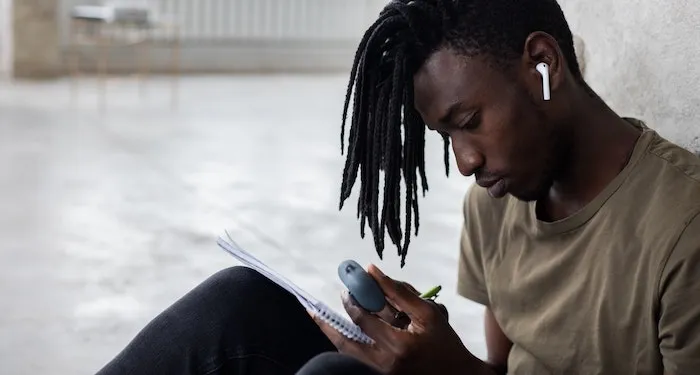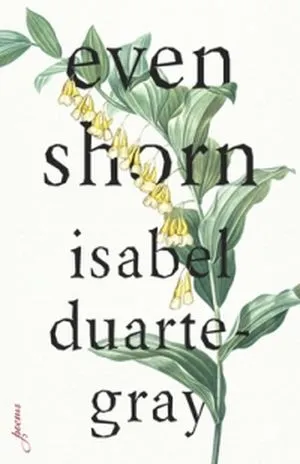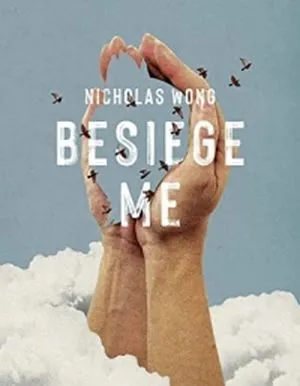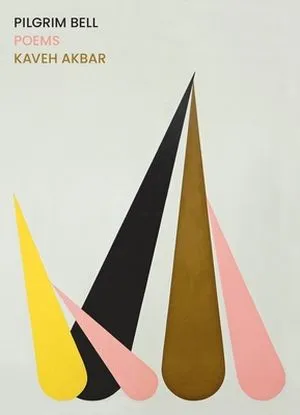
The Best New Poets You May Not Have Heard Of
The problem with publishing is that it’s full of white writers. In the poetry section, poets like T.S. Eliot, E.E. Cummings, and Walt Whitman are always put on a pedestal — they are constantly being mentioned in films. Have you had enough of the same old poems from dead white poets? Are you on the lookout for new poets of color to read? Below are some best new poets, majority non-white, whom you may not have heard of.
Some of them have been publishing for several years but have not had enough coverage until now. Some are just starting to write in the genre. The majority of them are prize-winning poets, while others are thriving on Instagram. No matter: these best new poets demonstrate that they can really capture hearts and minds in just a few strings of words.

Donika Kelly
Kelly is the author of Bestiary, which won the 2015 Cave Canem Poetry Prize, the 2017 Hurston/Wright Legacy Award for poetry, and the 2018 Kate Tufts Discovery Award. Her poems have appeared in The New Yorker, The Atlantic, The Paris Review, and in other publications.
Her third poetry collection, The Renunciations, is poignant, personal, and lyrical. She’s now one of my favorite poets. Here are stunning verses from the poem “The moon rose over the bay. I had a lot of feelings.”:
The home I’ve been making inside myself started
with a razing, a brush clearing, the thorn and nettle,
the blackberry bush falling under the bush hog…
…I stood in the mud field
and called it a pasture. Stood with a needle in my mouth
and called it a song. Everything rushed past my small ears:
whir in the leaves, whir in the wing and the wood. About time
to get a hammer, I thought. About time to get a nail and saw.
F.S. Yousaf
Yousaf is an emerging poet from New Jersey. He has already published three poetry collections: Euphoria, Sincerely, and Prayers of My Youth.
His poems are mostly autobiographical and confessional in nature; they are also very accessible.

Isabel Duarte-Gray
Duarte-Gray is currently a Ph.D. candidate at Harvard University. Her poems have appeared in The Colorado Review, Bat City Review, The South Carolina Review, december magazine, and elsewhere.
Her debut poetry collection, Even Shorn, got a starred review from Publishers Weekly. I wish it were a little bit longer, because at 98 pages, I find myself wanting more. Here are my favorite lines from the poem titled “Complaint” in Even Shorn:
what are bones that they can feel
be vexed for stillness
as the wind prepares
to choose the word most carefully
for rain the silty dread
when rocks will slither
down the mountain in a saffron
scarf the rags of hillsides pool
into a pillow for my dreaming there is comfort
to be taken when two dreads are parted
should I drown my couch in tears

Nicholas Wong
Wong is a poet based in Hong Kong. He is the winner of the Lambda Literary Award for Gay Poetry in 2016 for Crevasse.
In his second collection titled Besiege Me, he writes about the friction between China and Hong Kong. In an interview with Lambda Literary, Wong said that Besiege Me was born out of personal and political events in his life, mainly the recent happenings in Hong Kong and Taiwan, and also about his family.
Kayleb Rae Candrilli
Candrilli is recipient of a 2019 Whiting Award in poetry. They have written noteworthy poetry collections such as What Runs Over, 2017 finalist for the Lambda Literary Award in the transgender poetry category; and All the Gay Saints, winner of the Saturnalia Books Poetry Prize. Their third poetry book is Water I Won’t Touch, which is a very personal work.
Here are my favorite verses from the poem “Elegy for the Undead” from All the Gay Saints:
…Young people die
because they are too alive.
This is proven algorithm.
This is breaststroke
with a concaved lung.
There is a lesson
to be learned
from those that refuse
to go gently. I’ve learned
to keep my tongue
wet, and soft,
and gentle.

Kaveh Akbar
Akbar is an Iranian American poet. His works have appeared in publications like The New Yorker, The Paris Review, and The New York Times Magazine. He mostly writes about addiction.
He is the recipient of Pushcart and Lucille Medwick Memorial awards. Among his works are Portrait of the Alcoholic, Calling a Wolf a Wolf, and Pilgrim Bell. Here are my favorite lines from the poem “Pilgrim Bell,” off the collection of the same title:
How long can you speak.
Without inhaling. How long.
Can you inhale without.
Bursting apart. History is wagging…
…Today I answer only.
To my war name. Wise.
Salt. I can make.
A stone float off into.
The sky. I can make.
A whole family.
Disappear. I know.
So many people.
Have been awful to you.
I’ve given each one.
A number. When you’re ready.
I will ask you to draw me.
Their hands.
Divya Victor
Victor has been writing poetry for some time now. Among her best collections are Natural Subjects, winner of the Bob Kaufman Award; Kith, a book of verse, prose memoir, lyric essay and visual objects; and Things to Do With Your Mouth.
She has been a Mark Diamond Research Fellow at the U.S. Holocaust Memorial Museum. Her tenth poetry collection titled Curb received a starred review from Publishers Weekly.

Clint Smith
Smith is a staff writer at The Atlantic. He mostly writes poems about identity and politics. His debut poetry collection titled Counting Descent was released in 2017. Though it was published a while back, it gained traction during the Black Lives Matter protests in 2020.
Smith won the 2017 Literary Award for Best Poetry Book from the Black Caucus of the American Library Association. Here’s an excerpt from “what the fire hydrant said to the black boy” from Counting Descent:
…they say we both stay posted on corners
they say we both come with warnings
for others not to stand too close
but we both mind our own business
until people use us for things
we were never meant for
do you know what it means
for your existence to be defined
by someone else’s intentions?
a burning home
a burning cross
putting a boy against the wall
so the dogs
have an easier time
of course you know
a prison cell
an empty gun
a mourning mother of a boy who thought
sending him to that school across town
would mean he’d
have an easier time
but when they open us
spilling
until there’s nothing left inside
everyone stands around
to watch.
Dawn Lanuza
Lanuza is a writer from the Philippines. Though she is mostly known in the romance genre, she also writes poetry. Her self-published collection The Last Time I’ll Write About You was picked up and rereleased by independent publisher Andrews McMeel Publishing. Her other poetry titles are This is How It Starts and You Are Here.
Lanuza’s fourth poetry book is I Must Belong Somewhere: Poetry and Prose, in which she contemplates a lot of subjects such as mental health, bullying, and sexism, among others. The poems from the said collection appear to be untitled.
Here’s an excerpt from the 22nd entry:
How do you carry
the guilt of leaving
for a moment
for yourself?
…You hold on and pull them up,
but the weight, even for you,
is too much.
You strain your muscles—
no, don’t let go.
You get that resigned look,
and you know.
They will let you go—
and soon.

Adrian Matejka
Matejka is the first African American to be a Poet Laureate in Indiana since 1985; he held that title from 2018 to 2019. He mostly writes about race and identity.
Among his poetry collections are The Devil’s Garden; Mixology; The Big Smoke, a finalist for the National Book Award and Pulitzer Prize; and Map to the Stars. His fifth collection is Somebody Else Sold the World.
Here’s an excerpt from “Where to Begin” in Somebody Else Sold the World:
…my chest is cresting inside its loosed-limb protest.
There’s my cold-pressed undress over there, adjacent
to anything practical. I can’t wait to lick all of it
off of you with my mediocre metaphors. Just like
yesterday’s surprises, it’s past my time to shine.
Meanwhile, Friends in other countries have been out
in their damp streets for months echoing in concision.
They’ve bundled the back-in-the-days at the end
of a stick, then over one shoulder for the prolonged
procession. & then there’s us, spinning in place
like the last platinum record in the stack. & then
there’s us, caught up in America’s slacking atrium.
I hope that the aforementioned best new poets in this century satisfy your poetry cravings. If you find yourself speeding through all of their works, don’t worry, as your way of reading is perfectly valid.
And in case you get lost with all the terminology used in those books (because poets use figurative language), we’ve got you covered!







